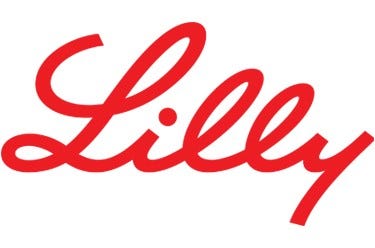Potential Lilly Blockbuster Shows Promise

Subscriber Benefit
As a subscriber you can listen to articles at work, in the car, or while you work out. Subscribe NowForgetting the names of your family, where to go and how to tackle day-to-day tasks are just a few of the obstacles Alzheimer's patients deal with. However, Eli Lilly and Co. (NYSE: LLY) says it is encouraged by results of a late-stage study on a potential therapy that could slow the disease. Lead Alzheimer's researcher with the Indiana University School of Medicine Dr. Martin Farlow was at the Alzheimer's Association International Conference in Washington D.C. Wednesday, and says the results show promise.
"We are particularly excited about these data because this is the first time the delayed-start methodology has been implemented for an Alzheimer's disease clinical trial. This new analytical method enabled us to assess if solanezumab had an effect that is consistent with slowing progression of disease by modifying the underlying disease progression, which, up until now, has not been studied. These results support the trial design and delayed-start analysis plan of EXPEDITION3, which is expected to have the last patient visit in October 2016," Eli Lilly and Company Study Research Advisor Dr. Hong Liu-Seifert said.
According to the company, "Solanezumab is Lilly's Phase 3 monoclonal antibody being studied as a potential therapy for patients with mild Alzheimer's disease. Solanezumab binds to soluble monomeric forms of amyloid-beta after it is produced, allowing it to be cleared before it clumps together to form beta-amyloid plaques."
Alzheimer's is a fatal illness that causes progressive decline in memory and other aspects of cognition. Doctors say it is the most common form of dementia. Health officials say there are currently an estimated 44 million people living with dementia worldwide. Eli Lilly says the number of people affected by dementia is expected to be more than 75 million in 2030 and 135 million in 2050. Officials say around 5.3 million Americans have Alzheimer's disease.
